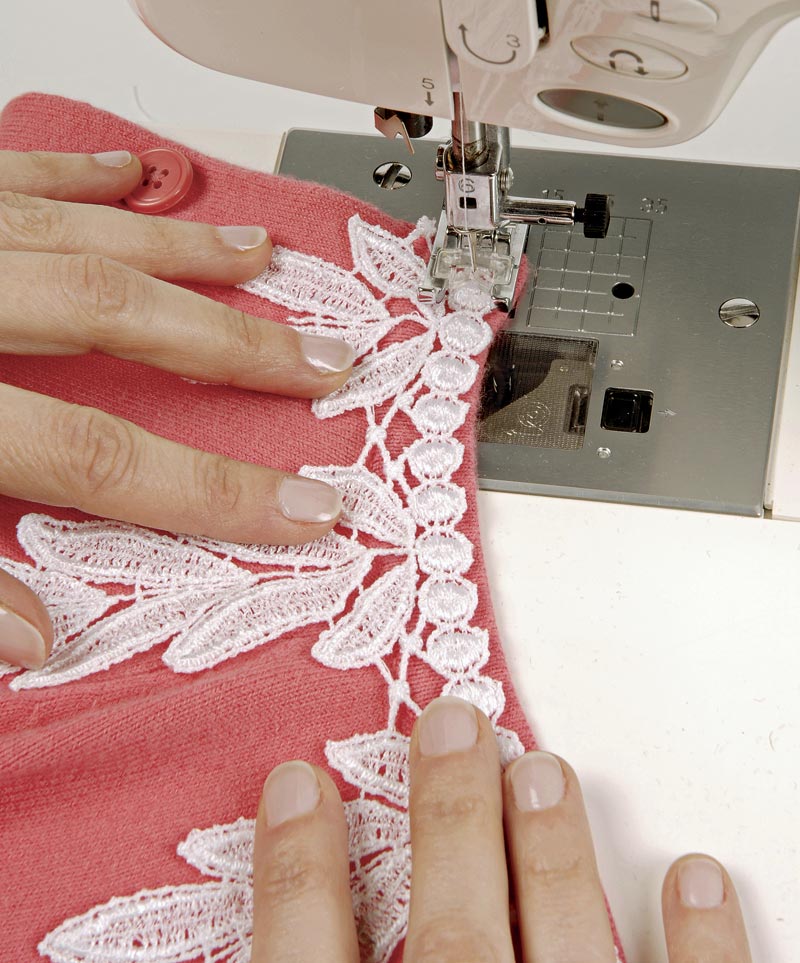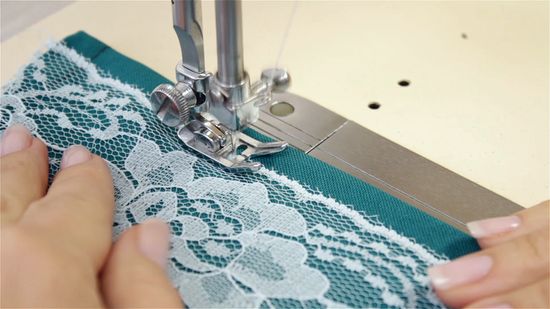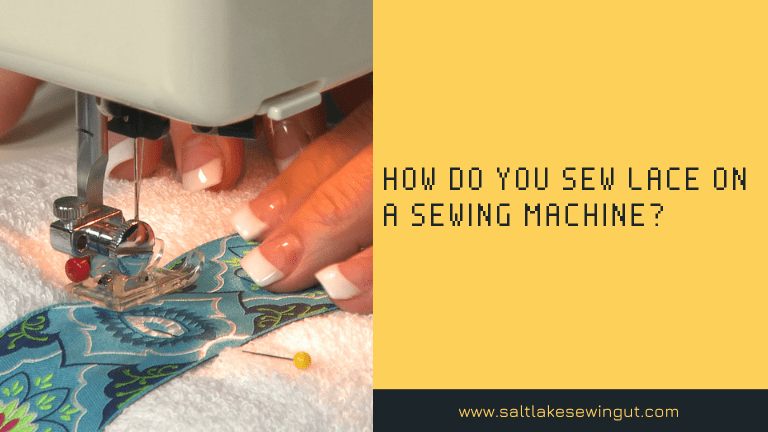Sew lace on a sewing machine can add a delicate and beautiful touch to your projects.
Lace adds a touch of elegance and detail to clothing, home decor, and accessories.
Sewing it on by hand can be tedious, but your trusty sewing machine can help you achieve professional-looking results in no time.
Tools
- Sewing machine: Most machines can handle basic sew lace. If you’re working with delicate lace, consider using a zigzag stitch or a free-motion foot for better control.
- sewing machine with accessories
- Thread: Choose a thread color that matches or complements the lace. A thin, sharp needle (size 60/8 or 70/10) is ideal for delicate lace.
- Scissors: Sharp scissors will ensure clean cuts and prevent fraying.
- Marking tool: A fabric marker or chalk will help you mark your stitching line accurately.
- Pins or basting: Pins or basting will hold the lace in place while you sew.
Preparing the Lace:
- Wash and dry the lace: This will prevent shrinkage and ensure it lies flat while sewing.
- Iron the lace: If needed, iron the lace on a low setting to remove wrinkles.
- Cut the lace: Cut the lace to the desired length and shape.

Attaching the Lace:
There are several ways to sew lace using a sewing machine. Here are two common methods:
1. Zigzag Stitch:
- Place the lace right side up on the fabric.
- Align the raw edge of the lace with the seam line on the fabric.
zigzag stitch
- Use a zigzag stitch to sew lace to the fabric, sewing close to the edge of the lace.
- Adjust the stitch width and length as needed to create a desired finish.
2. Free-Motion Stitching:
- This method requires a free-motion foot and some practice, but it allows for more creative and precise stitching.
- Attach the free-motion foot to your sewing machine.
- Lower the feed dogs.
- Place the lace right side up on the fabric.
- Guide the fabric slowly under the needle, stitching close to the edge of the lace.
- Use a zigzag or decorative stitch for a unique finish.

Tips for sewing lace
- Use a scrap piece of fabric to test your stitch settings before sewing on your project.
- Use a longer stitch length for sheer lace to prevent puckering.
- Use a contrasting thread color to create a decorative outline around the lace.
- Consider using a stabilizer behind the lace for added support, especially for delicate lace.
- Trim any excess thread and fraying edges after sewing.

FAQ
What type of lace is best for sewing with a machine?
Most types sew lace with a machine. However, delicate lace may require a special needle and stitch settings.
Can I use a straight stitch to sew lace?
A straight stitch can be used for some types of lace, but it may not be as secure or decorative as a zigzag stitch.
How do I prevent the lace from puckering?
Use a longer stitch length, adjust the tension settings, or use a stabilizer behind the lace to prevent puckering.
How do I clean lace after sewing?
Most lace can be hand-washed in cold water with a mild detergent. Check the care instructions for the specific type of lace you are using.

